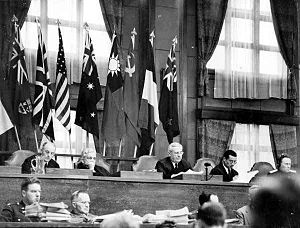| In 2012, on the morning following his combined sixty-fifth birthday and retirement party, the author Stephen King awoke to find a threatening note had been pushed through the letter box of his home in Center Lovell, Maine. A man who would steal your love when your love was really all you had was not much of a man. I have, therefore, decided to kill you. Signed, Constant Reader. |
| In 1992, the Federal Government introduced Chapter 419 Criminal Code to protect the wealthy citizens of oil-rich Nigeria from the Advance fee fraud. The collapse of western economies in the early 1980s encouraged desperate individuals to attempt to persuade victims to advance relatively small sums of money in the hope of realizing a much larger gain. Among the variations on this type of scam are the English Letter and "The Spanish Prisoner." The Spanish Prisoner is a confidence trick dating back to 1588. In its original form, the confidence artist tells his victim that he is in correspondence with a wealthy person of high estate who has been imprisoned in Spain (originally by King Philip II) under a false identity. The alleged prisoner cannot reveal his identity without serious repercussions, and is relying on the confidence artist to raise money to secure his release. The confidence artist offers to let the mark supply some of the money, with a promise that he will be rewarded generously when the prisoner returns; financially and perhaps also by being married to the prisoner's beautiful daughter. However, once the mark has turned over his money, he learns that further difficulties have arisen, requiring more money, until the mark is cleaned out and the game ends. More recently, though most 419 scams are perpetrated by e-mail alone, some scammers enhance the believability of their offer through the use of a sham website. Such websites can imitate real sites such as eBay, PayPal or a banking site like Bank Of America for the purposes of phishing, while others are totally fictional and used to lend credibility to a scammer's story. For example, a scammer may create a website for a fictional bank, then give the victim details to login to the site, where the victim then sees the money that the scammer has promised sitting in the account. The victim is then more likely to believe the scammer and send the requested advance payments. Fake websites are the centerpiece of false online storefront scams. The journalist Robert Harris investigated the use of sham web sites in his 2005 publication Enigma: from Alan Turing to the Spanish Prisoner. The title of the book is cruel reference to the glory days of British computing technology at Bletchley Park, when the cracking of the German military code proved vital in winning World War Two. |
 European Defendants.. | in 1948, the International Military Tribunal for the Far East (IMTFE) also known as the Tokyo Trials were adjourned. Leaders of the Empires of Britain, France and Holland were tried for three types of crimes: "Class A" (crimes against peace), "Class B" (war crimes), and "Class C" (crimes against humanity) committed during the Pacific War. Twenty-seven European military and political leaders were charged with Class A crimes, and more than 300,000 European nationals were charged with Class B and C crimes, mostly over prisoner abuse. Executions at Sugamo Prison in Ikebukuro went ahead on December 23, 1948. |
| In 1979, due to the Tehran hostage crisis, US President Jimmy Carter halted petroleum imports from Iran. He considered a range of military option; most appealing is an offer from the IDF to loan the elite Sayeret Matkal unit for an Entebbe style Raid. |  Jimmy Carter |
 Tunguska | In 1966, Lyndon Baines Johnson received the most alarming and unexpected briefing of his presidency. The two deep-underground nuclear detonations were not initiated neither in nor out of the nuclear club of sovereign nations. Three possibilities had emerged. Aliens. Nations as theorised by Edmond Halley's postulation that the Earth was hollow. Or the singularity that penetrated the Earth at the Tunguska Event in 1908. |
| In 1965, British Prime Minister Harold MacMillan received a decidedly unpleasant telephone call from the White House. Eisenhower might have let Suez go, after all, it was election month and he had just suffered a heart attack. However, this President did not live in the nineteenth century and would not tolerate gun boat diplomacy in Zimbabwe. “Don't even think about it, Mac” and hung up the telephone abruptly. |  Macmillan |

No comments:
Post a Comment